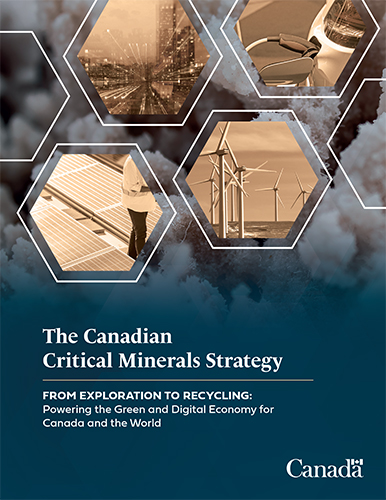Minister Wilkinson Announces Federal Investments Nearing $19 Million for New EV Chargers

March 9, 2023
Reducing pollution from the transportation sector is critical to Canada achieving its climate targets. That’s why the Government of Canada is making it easier, through investments, for Canadians to purchase, charge and drive electric vehicles (EVs) in British Columbia and across the country.

The Honourable Jonathan Wilkinson, Minister of Natural Resources, announced federal investments totaling nearly $19 million for the installation of up to 2,416 EV chargers, over 1,880 of which will be installed across Greater Vancouver. The Government of British Columbia, through its CleanBC Go Electric Program, also provided $2.2 million toward Level 3 public chargers to be installed in the province.
This funding was provided to 26 projects, led by organizations such as municipalities, multi-residential buildings, businesses and utilities.
Since 2016, the Government of Canada has invested a historic $1 billion to make EVs more affordable and chargers more accessible for Canadians and has approved funding to support the installation of more than 34,500 EV chargers to date.
In support of the government’s objective of adding 50,000 new zero-emission vehicle (ZEV) chargers to Canada’s network, Budget 2022 also provided an additional $900 million to Natural Resources Canada and the Canada Infrastructure Bank to continue deploying zero-emission vehicle infrastructure. Budget 2022 delivered an additional $1.7 billion to extend the government’s purchase incentive program until March 2025 and to expand the types of vehicle models eligible under the program, which would include more vans, trucks and SUVs.
Clean Industry Investments

Budget 2022 also provided up to nearly $4 billion over eight years for the implementation of the Canadian Critical Minerals Strategy, with the aim of advancing the development of critical minerals resources and value chains — including metals for clean technologies like electric vehicles and advanced batteries — to enable the transition to a low-carbon economy and support advanced technology and manufacturing.
Further, the 2022 Fall Economic Statement included a refundable investment tax credit for clean technologies including industrial zero-emission vehicle charging and refuelling equipment, alongside support for clean energy generation and storage.
These investments are yet another step in reaching Canada’s target of ensuring all new passenger vehicles sold in Canada are zero-emission by 2035. And just like investments in everything from clean technology to nature protection, today’s announcement is part of achieving Canada’s ambitious climate change goals to build a cleaner, healthier and affordable future for all Canadians.
Quick Facts
- Federal funding will be provided through Natural Resources Canada’s Zero-Emission Vehicle Infrastructure Program (ZEVIP), which supports the deployment of charging and refuelling infrastructure where Canadians live, work and play, as well as through the Electric Vehicle Infrastructure Demonstration Program that supports demonstrations of next-generation and innovative EV charging and hydrogen refuelling infrastructure.
- Transportation accounts for 25 percent of total greenhouse gas emissions in Canada.
- Thanks to the funds invested to date by the ZEVIP, more than 34,500 new charging stations will be installed from coast to coast by 2027.
- Budget 2022 provided Natural Resources Canada’s ZEVIP with an additional $400 million, and Canada’s Infrastructure Bank will invest $500 million to deploy an additional 50,000 electric vehicle chargers by 2027.
- To date, over 185,000 Canadians and Canadian businesses have taken advantage of the federal incentive to purchase a zero-emission vehicle.











![Guide to the Canadian Electrical Code, Part 1[i], 26th Edition– A Road Map: Section 56](https://electricalindustry.ca/wp-content/uploads/2022/11/Guide-CE-Code-2.png)



